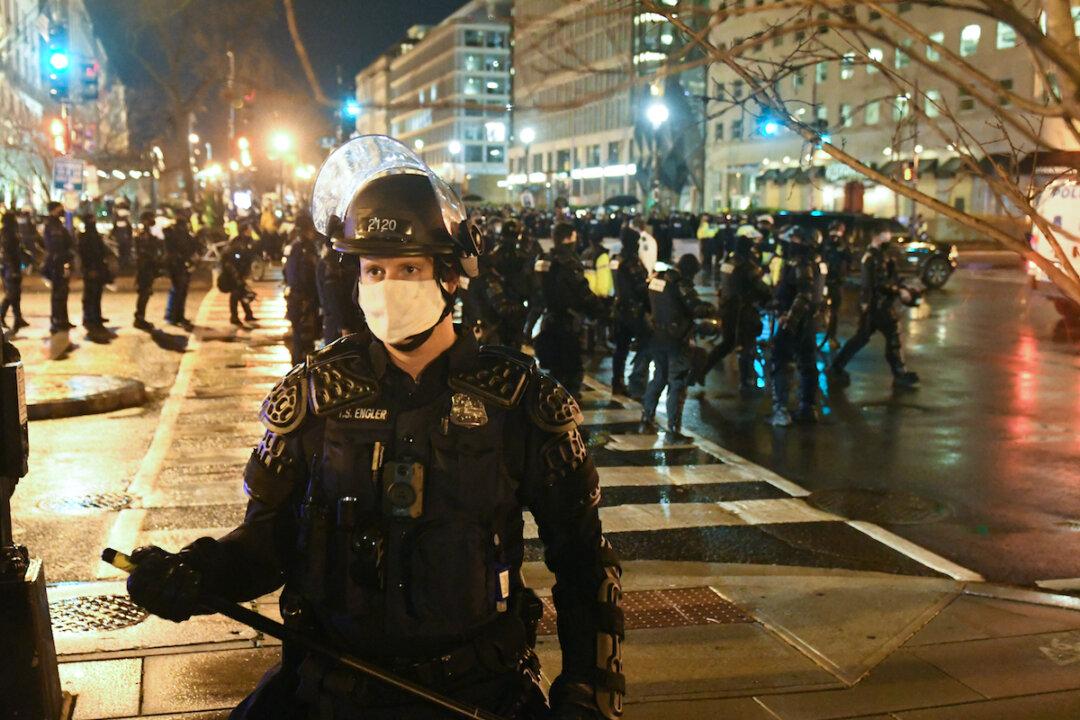At least four people were stabbed and police officers injured on the night of Dec. 12 after clashes between different groups of protesters broke out in Washington, D.C.
The violent confrontations, which followed a “Million MAGA March,” appeared to be between alleged members of the far-left Antifa group and the Proud Boys group, which was established by libertarian Gavin McInnes. Both groups have regularly attracted media attention for being involved in violent encounters with one another.




